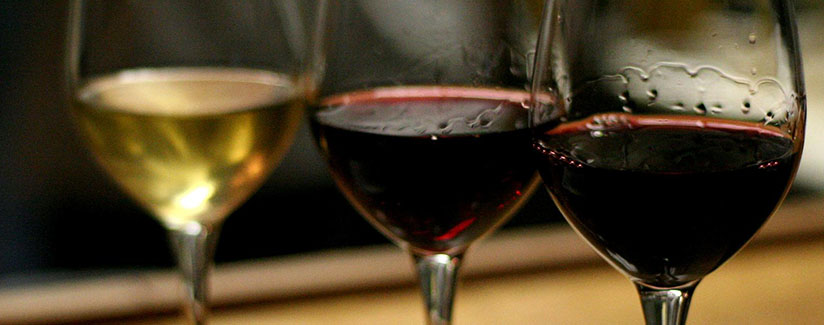
Is Red Wine Exercise in a Glass?
You’ve seen the headlines – Red wine is healthy! Red wine is good for you! But what does that mean? How is it healthy? Well, now we may have the answer.
A recently published medical research study from the University of Alberta, Canada reports that resveratrol, a natural compound found in some fruits, nuts, and red wine, may enhance exercise training and performance. To learn more about this seemingly magical compound, we reached out to Dr. Tony Johnston, Professor in the School of Agribusiness and Agriscience at Middle Tennessee State University.
What is resveratrol? What happens when consumed by humans?
Dr. Tony Johnston: “Resveratrol is one of many compounds produced by plants in response to stress. It is found in the skins of grapes as well as other foods such as peanuts and berries. This particular compound is one of a class of compounds called “polyphenols” (based on their physical structure) noted for its antioxidant properties. Antioxidants in general are thought to protect the human body against oxidative damage that leads to diseases such as cancer, heart disease, Alzheimer’s Disease, and diabetes. The logical argument is that consuming foods high in antioxidant compounds (including resveratrol) will protect a person against oxidative damage that is a factor in the development of these diseases.”
Does this mean drinking red wine regularly can help reduce our chances of getting any of those diseases? Potentially, but without further research, it’s hard to say for sure. Dr. Johnston points out that while it sounds amazing, there are several flaws to this logic, the most significant being the fact that oxidative damage is not the only cause of these diseases, so fighting oxidative damage alone is not enough. Another flaw to note is that it is unknown to what degree antioxidant consumption (via our diets or dietary supplements) is effective in disease prevention. What does that mean? According to Dr. Johnston, “the combination of these two flaws makes it impossible, therefore, to determine required consumption rates to cause the effect we desire.” So, while it would be amazing if we could just pop a cork instead of dragging ourselves to the gym, it’s going to be a few years and many research studies more before this is even a remote possibility.
Exercise can provide great benefits such as protection from a variety of health problems such as “heart disease, stroke, high blood sugar, noninsulin-dependent diabetes, obesity, and osteoporosis.” Moderate red wine consumption can reduce “the risk of depression, colon, lung, prostate, and breast cancer, dementia, and type-2 diabetes, in addition to minimizing brain damage caused by stroke and slowing down aging rates.” So while exercise and red wine consumption certainly offer similar benefits, Dr. Johnston reminds us that there are also many benefits offered by regular exercise that drinking red wine does not.
Dr. Tony Johnston: “The bottom line is that until we conduct more high-quality research and understand much more about how our bodies work, the factors involved in disease expression, and the effects of the multitude of dietary permutations in our population, we’ll have to continue to exercise regularly, eat healthily, and see a physician regularly to ensure that we remain healthy. The consumption of resveratrol supplements to prevent disease and slow the aging process is not recommended. That being said, a glass of red wine, especially with good food and great company, will certainly make your life more enjoyable and may even offer some health benefits on the side.”
“wine flight” by Jing is licensed under CC BY.


























